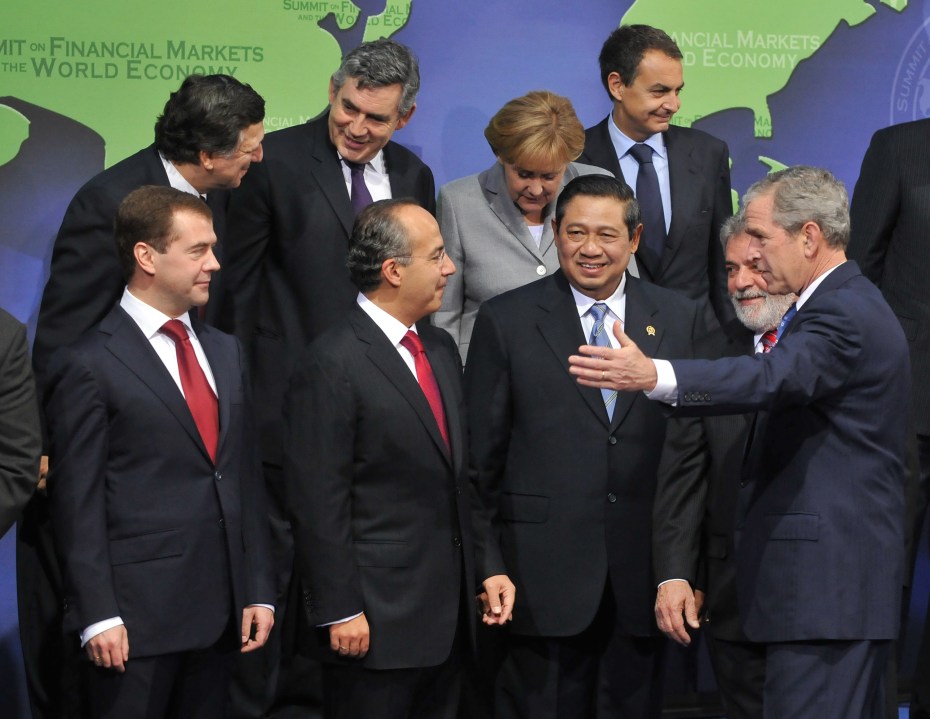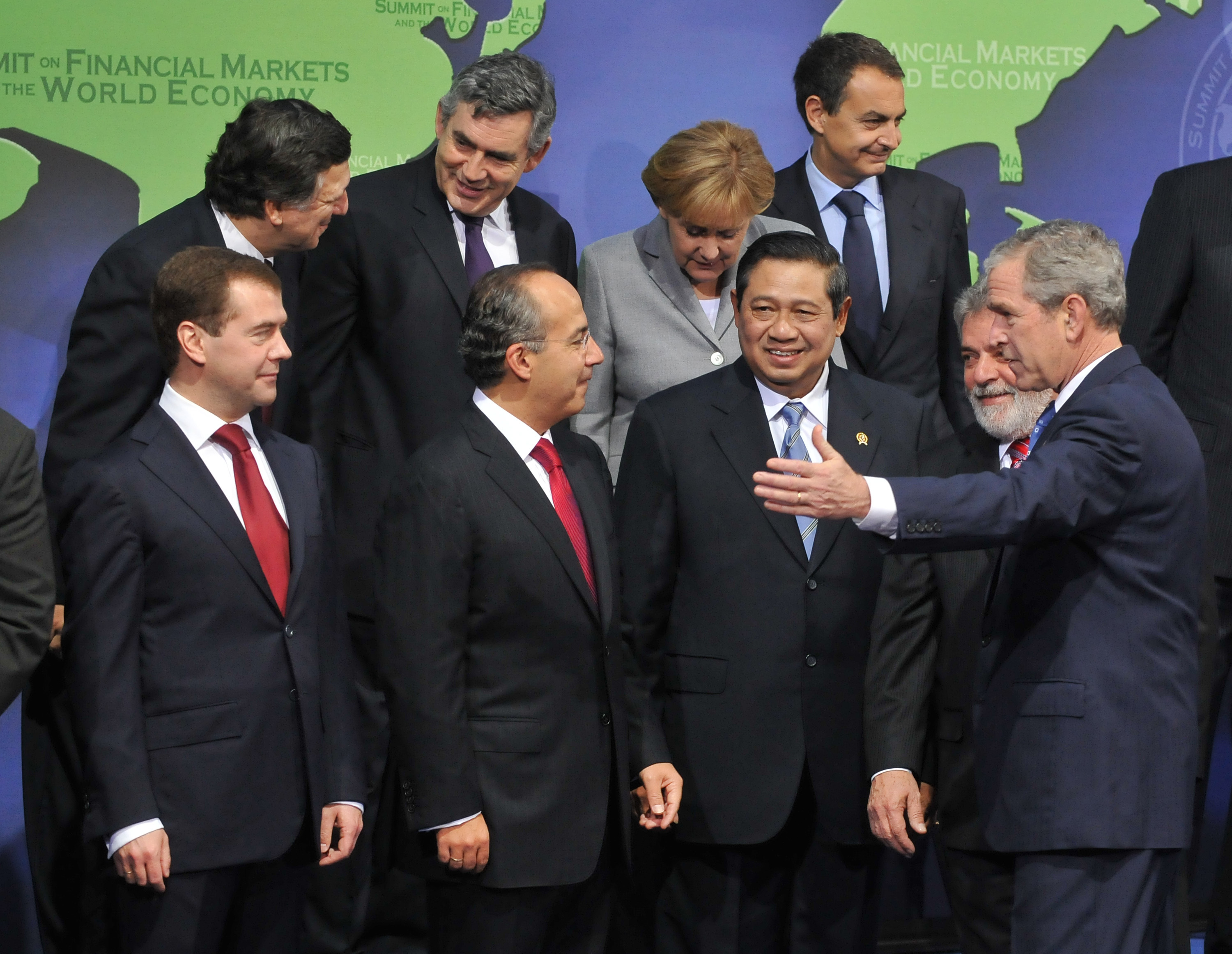 Rarely has a summit been so hastily organised, hyped so much, yet achieved as little as last week’s G20 meeting called by President George W. Bush to deal with the world’s financial crisis. World leaders did agree on a confidence-boosting package of economic assistance, but put off sorting out any detailed plans on overhauling financial management and regulation, or revising the problematic global currency trade and settlement regime until their next summit, scheduled on April 30, when the United States will be steered by President Barack Obama.
Rarely has a summit been so hastily organised, hyped so much, yet achieved as little as last week’s G20 meeting called by President George W. Bush to deal with the world’s financial crisis. World leaders did agree on a confidence-boosting package of economic assistance, but put off sorting out any detailed plans on overhauling financial management and regulation, or revising the problematic global currency trade and settlement regime until their next summit, scheduled on April 30, when the United States will be steered by President Barack Obama.
So what should happen between now and the April 30 meeting, which may take place in Watford (and make that pre-Roman trackway in Hertfordshire eponymous with world finance)?
Looking at what various experts are writing, a few things stand out. First of all, solutions will have to include the entire G20, including China, Saudi Arabia and India. The days when the G7 could huddle together, develop solutions and impose them on the rest of the world are now over. As Alex Evans and David Steven from Global Dashboard state (pdf) “rich countries currently have an unhealthy obsession about being displaced by China and the rest.”
Then, as Colin Bradford and Johannes F Linn at Brookings argue, the International Monetary Fund must be given “a significant role in addressing the need for institutional reform.” The IMF, along with George Soros, was pretty much the only body which accurately predicted the crisis. Having risen from the ashes, it now needs to be given funds and support, as well as to become more inclusive. Asian resentment at the way the IMF handled the 1997-98 Asian financial crisis gave rise to the Chiang Mai Initiative, a 13-nation accord to pool resources for the next crunch. It has for a long time had more money available than the IMF and, though it claims to be linked to the world body, it clearly represents a regionally-based model of cooperation – one that seems dangerous in the present times.
Japan has offered the IMF $100 Billion, but the fund probably needs at least $500 billion so it can meet the potential needs of countries hammered by the crisis. If the IMF cannot be reformed, then the G20 leaders should institutionalize their meeting with a permanent secretariat that would assure effective transparency, oversight, supervision and financial regulation in their countries.
Aside from bolstering the IMF, what else should G20 officials be looking to achieve? The most comprehensive set of solutions comes from Morris Goldstein, who suggests a 10-point agenda, including: creating an international, quantitative liquidity requirement for banks; reworking the Basel II bank capital regime; improving coordination between the monetary and regulatory authorities during the build-up of asset-price bubbles, so that responsibility for dealing with asset-price bubbles is clear; establishing clearing houses in the OTC derivative markets to reduce systemic risk; and reducing conflict of interest in the major credit rating agencies by restricting their activities to the ratings business.
His colleague C. Fred Bergsten adds that the G-20 should “disavow the imposition of any new trade distortions.” Prime Minister Gordon Brown is said to have pushed for the G20 leaders to “refrain from erecting new barriers to investment and trade for the next 12 months”. Yet it is hard to see how Baroness Ashton – the new EU Trade Commissioner – will have the necessary political clout to rejuvenate the Doha trade talks, which fell apart over the summer. The recall of Peter Mandelson to the Cabinet may prove short-sighted in other ways.
Finally, as Evans and Steven note, “it is staggering to realise that there are two tribes, each hoping for a far-reaching global deal in 2009 – one on finance, the other on climate.” Right now, the prospects for achieving either are slim. But, as the two analysts argue, they will be non-existent if the issues are treated in isolation.
For once, it seems sensible that the G20 summit under-reached, as long as the real work now begins on what the Watford System will look like and how to address financial, trade and climate issues in a way that avoids the problems of the past, imagines the nature of future crises, and undertakes mutually supportive reforms.







Comments